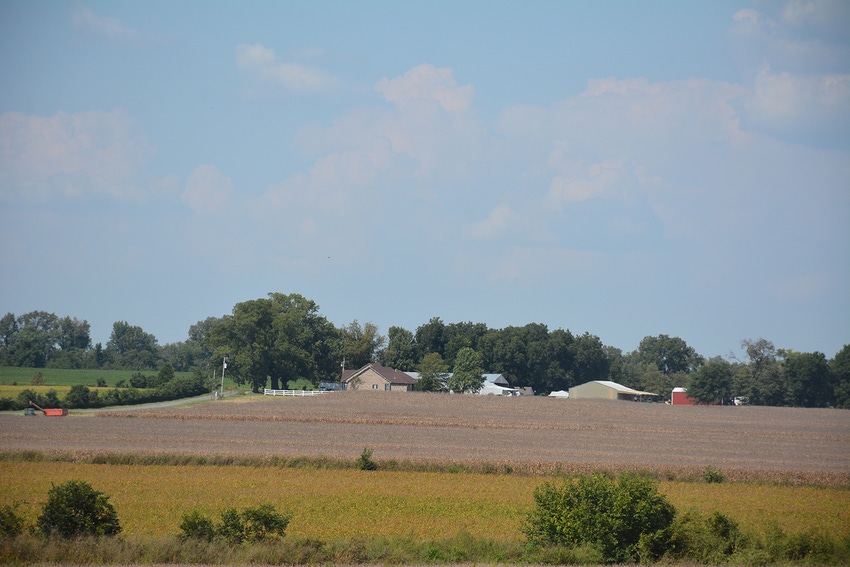
The importance of the 2018 farm bill or the Agriculture Improvement Act of 2018 reflects today’s challenging and uncertain domestic and global economy. Consider the following:
First, this is the fifth year in which row crop producers have faced significant cash flow challenges. The 2018 farm bill, given today’s current slowing global economy and emerging 2019 global collective economic uncertainties, provides farm policy certainty for our producers as they make 2019 production plans.
Second, trade and other policy disputes related to fiscal and monetary policy, coupled with currently restrained global stimulative activities, continue repressing farm market prices. The 2018 farm bill provides producers, lenders, industry, and communities with certainty related to farm legislation going into the 2019 farm production season.
Third, the need for the 2018 Market Facilitation Program (MFP) to enhance the 2014 farm bill safety net magnified the need for passage of the 2018 farm bill and its enhanced safety-net provisions. The MFP did not provide direct support for rice, but did provide direct support payments to help corn, cotton, sorghum, soybean, wheat, dairy, hog, shelled almonds and fresh sweet cherry producers who have been directly affected by illegal retaliatory tariffs, resulting in the loss of traditional exports.
Fourth, many farm bill opponents, who have fought against the current farm bill, would not agree, but passage of the 2018 farm bill is a huge win for the U.S. consumer. In today’s ongoing stimulus driven global economy, all business sectors, including agriculture, are consolidating, due in part to major global deflationary forces, policy disputes and other factors. The longer the consolidation continues in the ag sector, the more concentrated the sector becomes and with increased concentration comes increasing pricing power and higher consumer food prices.
Fifth, no row cropped based rural community in America is not affected by building and burdensome economic pressure due to the yearly continuance of weak commodity prices. The 2018 Farm Bill provides farm lenders and supporting businesses and communities with a level of certainty or working financial parameters for fiscal 2019.
Farm bill video and coming webinars
Shurley Cotton Market and Farm Bill Video
Cotton Market Outlook and Farm Bill Update with Dr. Don Shurley, University of Georgia, January 17, 2019 – Video Link: https://bit.ly/2RGQ5mM
Dr. Don Shurley, cotton economist and professor emeritus of cotton economics in the Department of Agricultural and Applied Economics, University of Georgia, discusses cotton prices influenced by continuing trade uncertainties and economic concerns. Cotton’s economic fundamentals still favor better prices, however.
Westhoff market outlook and farm bill webinar
Title: The Market Outlook under the New Farm Bill January 24, 2019 10 AM CST
Patrick Westhoff, Director - Food and Agricultural Policy Research Institute (FAPRI) & the Howard Cowden Professor of Agricultural and Applied Economics, University of Missouri, takes on trade issues and “normal” supply and demand uncertainties. Westhoff will summarize important features of the new farm bill for crop producers and discuss what is known and not known about the market outlook. Link to register: http://bit.ly/UAEX-Market-Outlook-FarmBill-Westhoff
Coble Farm Bill Webinar
Title: A First Look at the Farm Bill, January 31, 2019 8 AM CST
Presenter: Keith Coble is a Giles Distinguished Professor and Head of the Agricultural Economics Department at Mississippi State University where he focuses on agricultural policy, insurance, and agricultural data analytics. Within his profession, Coble is the President-elect of the Agricultural and Applied Economics Association (AAEA). Coble has testified before Congressional Committees on three occasions regarding agricultural policy and served as the Chief Economist for the Minority Staff of the Senate Agriculture, Nutrition, and Forestry Committee during the 2013-2014 farm bill debate.
This seminar will focus on the provisions of the new Agricultural Improvement Act of 2018. Specific provision of interest to row crop farmers will be examined. Link to Register: http://bit.ly/UAEX-Farm-Bill-Coble
Source: Bobby Coats is a professor in the Department of Agricultural Economics and Agribusiness, University of Arkansas System, Division of Agriculture, Cooperative Extension Service. E-mail: [email protected]., and is solely responsible for the information provided and is wholly owned by the source. Informa Business Media and all its subsidiaries are not responsible for any of the content contained in this information asset.
About the Author(s)
You May Also Like




